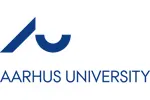

| The award | How you will study | Study duration | Course start | Domestic course fees | International course fees |
|---|---|---|---|---|---|
| MSc | Full-time | 4 semester | September, February | 0 | EUR 0 per year |
Mathematics is a part of day-to-day life - of using your debit card and navigating by GPS, just as much as making calculations in physics or chemistry or working out the pot odds in an important hand of poker.
RESEARCH AND SPECIALISATION
Teaching at the university is greatly influenced by the research conducted here, as the lecturers are active researchers. When students write their MSc thesis during the final year of the programme, they have excellent opportunities to become affiliated with a group of researchers, which allows them to participate in the group's research projects and scientific discussions. Students specialise in a subject within a broad area, including one of the three areas of mathematics in which Aarhus University is particularly strong: algebra, analysis, and geometry and topology.
STUDENT LIFE
As a student in the programme, you are based at the Department of Mathematics, which has its own canteen, computer rooms, library, and study areas shared by students. As a master's student, you will be given your own desk in an office shared with other master's students. The department also has a number of student organisations such as Euler's Friends (Eulers Venner) and the Kalkulerbar (Friday bar) organising lectures on current maths topics, study excursions, and social functions.
CAREERS
Graduates from the Department of Mathematics find work across a wide range of fields and institutions including finance, communication, and the wind-power industry in the private sector. Typically, previous graduates are working in universities and research institutions, in the pharmaceutical industry, the telecommunications and finance sectors, and in insurance companies.
Graduates who pursue academic careers at universities are often involved in interdisciplinary work with doctors, biologists or chemists, analysing large amounts of data, or teaching statistics to these professional groups. In the pharmaceutical industry, graduates plan clinical trials or design methods for examining whether new drugs have unwanted side effects. In the insurance industry, graduates typically work as actuaries and may contribute to working out tariffs. Common to all these jobs is the requirement for knowledge of a number of complicated mathematical models - something the MSc in Mathematics will equip you with.
All EU/EEA/Swiss citizens are exempt from payment of tuition fees.
In general, admission to a Master’s degree programme requires successful completion of a relevant and recognised university degree equivalent to a Danish Bachelor’s degree in level and length (180 ECTS). All applications must also fulfil the English language requirements.
Find more information about the admission requirements, application procedure and deadlines at Aarhus University.
In addition, you must meet the specific requirements for the Mathematics programme, which can be found on the Mathematics study programme page.
Below are some suggested courses at other providers that you may also be interested in:
Bachelor of Business Administration BBA
University of Applied Sciences Europe - Amsterdam
Find out moreIf you do not meet the entry requirements for this course then consider one of these postgraduate preparation courses from another institution:
Graduate Diploma of Engineering (Electrical Systems)
Engineering Institute of Technology
Find out moreGlobal Master of Engineering in Logistics and Supply Chain Management (GSCM)
Zaragoza Logistics Center (ZLC)
Find out moreThere are 56 other courses listed from Aarhus University. A selection of these are displayed below:
Find out more about studying in Denmark